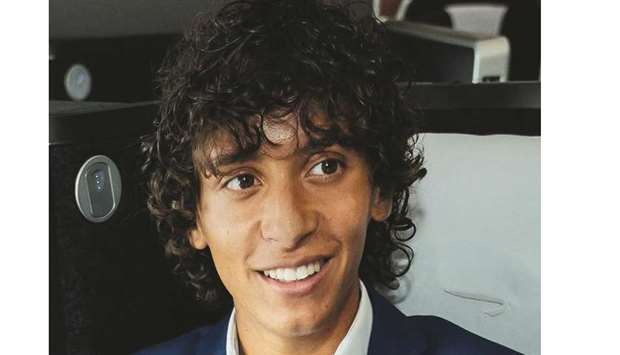Health protection measures must be implemented in order for the world to pursue a successful restart of air passenger travel while restoring confidence in the safety of air travel are vital prerequisites to enabling the global economy to recover from Covid-19.
There are many ways to describe how the return to service for most airlines will be. Slow, gradual, measured — perhaps even nervous as the world continues to grapple with the coronavirus pandemic, while lockdowns are slowly eased at several nations around the world. If there’s one thing airlines have realised during this stage of the pandemic, it’s that the only way to win at least some passengers back, is to restore travel confidence which is at an all-time low.
This week, French President Emmanuel Macron’s administration unveiled a string of measures, totalling 15bn euros ($17bn), to support the country’s aviation industry — with the majority of the package dedicated to national airline, Air France, and one of the world’s largest aircraft manufacturers, Airbus. The package includes direct government investment, subsidies, loans and loan guarantees. It also pledges support for Airbus’ smaller suppliers who are struggling given the fall in air travel demand, and the uncertainty ahead.
In exchange for the aid, companies will be required to invest more, and faster, in electric, hydrogen or other lower-emission aircraft, as France aims to make its aviation industry the "cleanest in the world”. “We will do everything to support this French industry that is so critical for our sovereignty, our jobs and our economy," Finance Minister Bruno Le Maire said.
Airbus said it is cutting production by up to 40%, and rival Boeing announced during the virus lockdown that it would cut 10% of its 161,000-person workforce through attrition, early-out offers and layoffs.
"The recovery will be long," Le Maire warned. The government predicted it would be 2023 before the industry reaches pre-crisis levels.
Meanwhile, airlines are set to lose $84bn as the coronavirus pandemic reduces revenue by half to mark the worst year in the sector's history, the International Air Transport Association (IATA) forecast on Tuesday. With most of the world's airline jets still parked, IATA said revenue would likely fall to $419bn from $838 bn last year. "Every day of this year will add $230m to industry losses," IATA Director General Alexandre de Juniac said.
"Airlines will still be financially fragile in 2021," de Juniac said, predicting "even more intense" competition.
"That will translate into strong incentives for travellers to take to the skies again," he added.
IATA forecast a rise in 2021 revenue to $598bn. Airlines are counting
the cost of weeks of lost business, a debt pile swollen by bailouts and a diminished demand outlook. Passenger numbers are seen falling to 2.25bn this year before rising to 3.38bn in 2021, still more than 25% below 2019 levels. Yields are seen falling 18% this year, contributing to a $241bn decline in passenger revenue.
Cargo, a relatively small share of the overall business, brought some relief as mass plane groundings drove price increases expected to top 30 percent, IATA said, helping revenue to a near-record $111bn.
Elsewhere, Boeing delivered just four planes in May, down from the six it delivered in April, its lowest total for the month in six decades and about 87% fewer than it delivered to customers at the same time a year ago. None of the four delivered jets were passenger planes. Furthermore, Boeing’s airline customers also cancelled orders for another 18 planes last month, including 14 737 MAX jets — the still-grounded single-aisle airliner.
Hong Kong’s government is leading a bailout of the city’s flag carrier Cathay Pacific Airways providing it with the majority of a $5bn funding package that could also give the government a minority stake in the airline. Cathay said on Tuesday that it would receive $2.5bn from a government-owned entity called Aviation 2020 Ltd.
It’s now mandatory for passengers to wear a mask on any airline in nations including Spain, Canada, Chile, Qatar, Kuwait, Oman, India, & Kenya. Other airlines, including British Airways, Finnair, Lufthansa, easyJet, Austrian, Alitalia, Ryanair, Singapore Airlines, Air Tanzania have also implemented a mandatory mask wearing policy.
IATA supports the wearing of face masks for passengers and crew while on board aircraft as a critical part of a layered approach to biosecurity to be implemented temporarily when people return to traveling by air. IATA has backtracked on its position of social distancing onboard, and unlike its previous statement which first supported social distancing in the cabin – it now does not support mandating social distancing measures that would leave ‘middle seats’ empty — a relief for the airlines who publicly slammed the idea over the prospect of lost revenue should the aircraft cabin be 1/3 empty.
Calls for social distancing measures on aircraft would fundamentally shift the economics of aviation by slashing the maximum load factor to 62%. That is well below the average industry breakeven load factor of 77%. With fewer seats to sell, unit costs would rise sharply. Compared to 2019, air fares would need to go up dramatically—between 43% and 54% depending on the region—just to break even.
As part of the slower return to skies, passengers should expect the airlines to adopt either all, or some of the following measures. Temperature screening of passengers and crew. Boarding and deplaning processes that reduce contact with other passengers or crew. Limiting movement within the cabin during flight, more frequent and deeper cabin cleaning; and simplified catering procedures that lower crew movement and interaction with passengers.
*The author is an aviation analyst.

